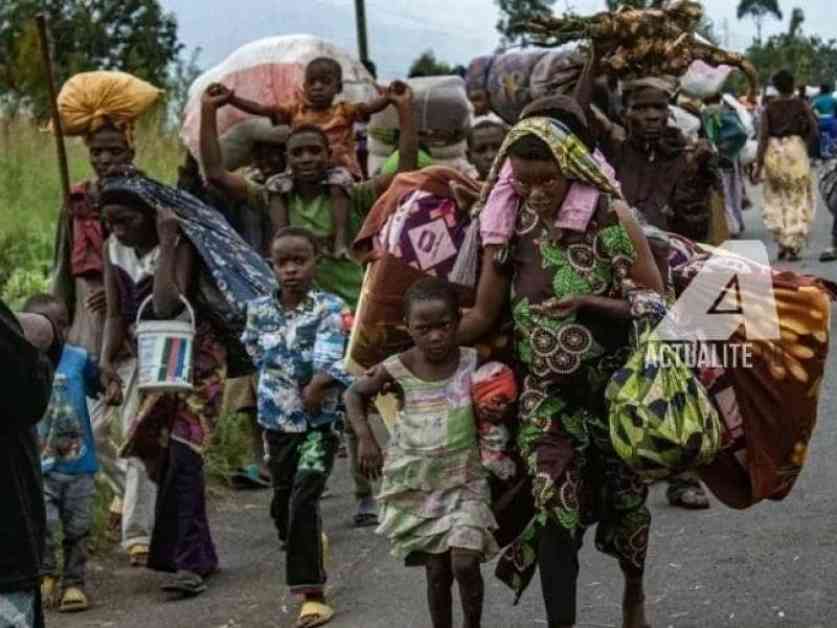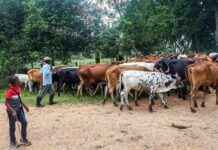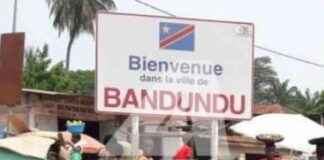The recent displacement of 30,000 people in Sud-Kivu has raised significant concerns about the escalating conflict in the region. The United Nations Office for the Coordination of Humanitarian Affairs (OCHA) presented an overview of the socio-security situation in the Kalehe territory on February 11, 2025, shedding light on the humanitarian consequences of the ongoing clashes between the Armed Forces of the Democratic Republic of Congo (FARDC) and the M23 rebels.
The conflict has primarily centered around the Minova-Bukavu axis, particularly in the high plateaus of Chambombo (Buzi Grouping) and near the town of Nyabibwe (Mbinga Nord Grouping), including Kalehe center. Reports from local humanitarian sources indicate that recent bombings in Nyabibwe, located 60 km from Bukavu, have resulted in injuries to at least three individuals and damage to electrical infrastructure. Additionally, incidents of protection concerns, including looting and arbitrary arrests, have been reported along the Nyabibwe-Kalehe center axis.
According to health sources, since January 29, approximately 30,000 individuals from villages along the Minova coastline (Kasunyu, Nyamasasa, Ruhunde, Karango, and Kiniezire/Mukwidja) have been displaced to the Idjwi territory, as well as to Kalehe center, Katana, Kavumu, Mudaka, and Bukavu. Other displaced persons have sought refuge in Bunyakiri to the west of Kalehe, and Kalungu to the north. The OCHA report highlights that armed individuals have committed numerous human rights violations, including sexual violence and looting, particularly in the town of Ihusi since February 5.
The reverberations of the clashes in Nyabibwe have sparked deep concerns among the residents of Bukavu, the capital of Sud-Kivu province, leading to the suspension of classes in many schools and universities since February 7. Furthermore, some traders in Bukavu have taken precautions by relocating their goods to prevent the risk of looting.
“In Minova, socio-economic activities have resumed, with local markets operating normally once again. Schools have tentatively resumed their activities. Many residents who had fled the clashes to Goma in January are facing difficulties in returning with their children due to the prohibition of crossing Lake Kivu between the entry point of Nzulo (North Kivu) – Bugulube (Sud-Kivu) and Idjwi-Kasunyu. Since February 5, the Central Health Zone Bureau (BCZ) in Minova has also resumed its epidemiological surveillance activities. Humanitarian activities are ongoing, although logistical constraints are affecting medical supply chains. Many health facilities are almost out of stock of essential medicines, jeopardizing access to care,” the humanitarian update states.
The security and humanitarian situation in eastern Democratic Republic of Congo (DRC) continue to rapidly deteriorate, with the armed conflict escalating, resulting in massive displacements and exacerbating humanitarian needs. The M23 armed group, supported by Rwanda, now controls Goma after intense clashes with the Congolese army, forcing hundreds of thousands of civilians to flee. This rebel movement, closely tied to Kigali, also aims to expand its influence in the Sud-Kivu province.
Across the country, over 21 million people were already in need of humanitarian assistance before the recent crisis escalation, making it one of the highest figures globally, according to OCHA DRC. Approximately one million individuals have sought refuge in neighboring countries, while the escalating violence in the east of the country threatens to worsen the crisis.
Since the beginning of January, the escalation of conflict and intensified attacks by the M23 in North and South Kivu have displaced hundreds of thousands of people, exacerbating the humanitarian crisis and straining already scarce resources. The violence has resulted in hundreds of deaths and thousands of injuries, while the closure of roads and ongoing insecurity further restrict humanitarian access.
Clément MUAMBA, a local resident, emphasized the urgent need for international support to address the escalating crisis in the region, emphasizing the importance of immediate action to prevent further suffering and loss of life.

















